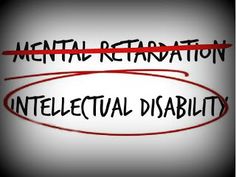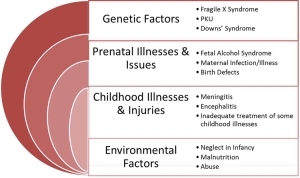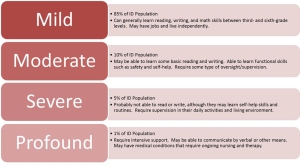
Happy Hearts Day! Hmm, want your heart to be happy? Have a high emotional intelligence. Eh??
It’s a happy Valentines’ Day to all. Yeah it’s kinda sweet this mushy season especially if you’re with someone special. Oh, it’s quite common in neurodiversity to find a someone special. Believe me. But, like me, am six years single since my last relationship and haven’t found another one, it’s okay. Don’t fret. Don’t be jealous. Maybe for us neurodiverse people (and all people of course) we need to learn more about emotional and social intelligence before we worry about finding that special someone.
What is emotional intelligence?
Emotional intelligence (EI) or emotional quotient (EQ) is the knowledge of awareness and dealing with emotions or feelings. It is the capability of individuals to recognize their own, and other people’s emotions, to discriminate between different feelings and label them appropriately, and to use emotional information to guide thinking and behavior.[1]
Usually most people do acquire emotional intelligence as they learn to navigate the world from their childhood ie by slowly learning to control their feelings like learning to delay gratification by not whining or throwing tantrums as they get older. Or when they become adults they try to calm down when being nagged by an angry employer or lover and not just shout back and curse them unless they cause so much harm or have an emergency situation.
Now, the problem with neurodiverse people, people with learning disabilities and developmental disorders and people with extremes in intelligence, their emotional intelligence is usually less developed than most people or the typically developing people. Why is this that so? Because these people usually has atypical or not so usual brain development ie too rapid cognitive development like giftedness, errors in brain chemicals that govern the brain and its activities like in ADHD or lack of theory of mind or the ability to read other people in cases of autism spectrum disorders, these can cause less development of the emotional intelligence.
What is the implication of the lack of EQ to neurodiverse people?
The thing here is because neurodiverse people have less developed EQs, their dealing with emotions is much harder to control. Let’s give child prodigies as example. Usually parents of child prodigies just harness their children’s area of gift (usually classical music or math) and they train these kids harshly as if they’re robots that do nothing but practice all day or study without teaching them to be more aware of themselves – their strengths and weaknesses. Now prodigies do excel in their gifts, but that cannot be sustained. Why? Because these kids tend to become their own uinverse thanks to parents who want them to be always the winner and being a loser means they’re rubbish and a loser anyway, they tend to lash out when they lose or may become withdrawn and quiet, not able to deal with their own emotions. This is not good as it can result in having emotional problems later on in life.
People in neurodiversity have more problems picking up and understanding emotions but this is not due to their laziness or sort but because of the brain structure. In children in ADHD, some brain parits are actually smaller than the brains of children without ADHD. Overall rain size is generally 5% smaller in affected children than children without ADHD.[2] This means that the part of brain dealing with emotions is somewhat less developed. This makes children with ADHD less attuned with their own feelings and just blurt out hurtful words or become too emotional that is not appropriate for their age ie a middle schooler throwing tantrums and behaving like a 2-year-old.

Image courtesy of quotesgram.com. Oh! this dog is too cranky. People with lower EQ have much more tendency to be cranky all of the time especially when they can’t get what they want.
What are the complications of having a low EQ?
Psychological problems may arise from not being aware of their feelings. they may become more obsessed with numbing their emotions by having a vice (illegal drugs, casual sex) or become more dependent too other people (as security blanket – hmm I’m guilty of this as I used my mom as my security blanket to hide my emotional inadequacy). Also, by not being aware of your emotions, you’ll also never to learn to be aware and support other people’s feelings. You become more selfish and childish in your ways just trying to consider only yourself not other people. That is so bad. People will get avoid and dislike you, which si the reason why a lot of neurodiverse people are single or have turbulent relationship history.
Not good right? Now, what are the characteristics of people with high emotional intelligence and how neurodiverse people can learn from them?
Daniel Goleman, an American psychologist, developed a framework of five elements that define emotional intelligence[3]:
- Self-Awareness – People with high EI are usually very self-aware
 . They understand their emotions, and because of this, they don’t let their feelings rule them. They’re confident – because they trust their intuition and don’t let their emotions get out of control.[4]
. They understand their emotions, and because of this, they don’t let their feelings rule them. They’re confident – because they trust their intuition and don’t let their emotions get out of control.[4] - Self-Regulation – This is the ability to control emotions
 and impulses. People who self-regulate typically don’t allow themselves to become too angry or jealous, and they don’t make impulsive, careless decisions. They think before they act. Characteristics of self-regulation are thoughtfulness, comfort with change,integrity
and impulses. People who self-regulate typically don’t allow themselves to become too angry or jealous, and they don’t make impulsive, careless decisions. They think before they act. Characteristics of self-regulation are thoughtfulness, comfort with change,integrity  , and the ability to say no.[4]
, and the ability to say no.[4] - Motivation – People with a high degree of EI are usually motivated
 . They’re willing to defer immediate results for long-term success. They’re highly productive, love a challenge, and are very effective in whatever they do.[4]
. They’re willing to defer immediate results for long-term success. They’re highly productive, love a challenge, and are very effective in whatever they do.[4] - Empathy – This is perhaps the second-most important element of EI. Empathy
 is the ability to identify with and understand the wants, needs, and viewpoints of those around you. People with empathy are good at recognizing the feelings of others, even when those feelings may not be obvious. As a result, empathetic people are usually excellent at managing relationships
is the ability to identify with and understand the wants, needs, and viewpoints of those around you. People with empathy are good at recognizing the feelings of others, even when those feelings may not be obvious. As a result, empathetic people are usually excellent at managing relationships  , listening
, listening  , and relating to others. They avoid stereotyping and judging too quickly, and they live their lives in a very open, honest way.[4]
, and relating to others. They avoid stereotyping and judging too quickly, and they live their lives in a very open, honest way.[4] - Social Skills – It’s usually easy to talk to and like people with good social skills, another sign of high EI. Those with strong social skills are typically team players. Rather than focus on their own success first, they help others develop and shine. They can manage disputes, are excellent communicators, and are masters at building and maintaining relationships.[4]
All these five are needed in order to have a high emotional intelligence. Easier read than applied, right? Especially if you have a learning disability right?
Yes. That’s only a part, but trust me, all people do have to learn how to have emotional intelligence. In short everybody. But also we need also EQ, needed it more than IQ in order to be more satisfied in life and in ourselves.
How to increase your EQ?
Awareness and acceptance are the key elements in developing your EQ. To develop your EQ you just first be aware of what are you feeling. Note your emotional reactions to events throughout the day. It’s easy to put your feelings about what you experience throughout the day on the back burner. But taking time to acknowledge how you feel about experiences is essential to improving your EQ.[5]
Pay attention to your body. Instead of ignoring the physical manifestations of your emotions, start listening to them. Our minds and bodies are not separate; they affect each other quite deeply.[5]
Wikihow gives some examples of feelings with physical signs[5]:
Stress might feel like a knot in your stomach, tight chest, or quick breathing.
Sadness might feel like waking up with slow, heavy limbs.
Joy or pleasure might feel like butterflies, your stomach, a racing heart or increased energy.
Observe how your emotions and behavior are connected.[5] For example when you see your crush, what do you do, do you hide? Become speechless and run away? Or when you’re angry, you throw things like I used to do. This is very important especially for people who can’t fully express themselves verbally (autism, expressive language disorders and the like) as behavior can make or break in dealing with other people. Especially if a person behaves destructively. She can hurt herself as well as other people. This can cause social isolation and can lead to more severe psychological problems like depression.
And accept your feelings wholeheartedly. No judging. Even if you feel ashamed (I’m still guilty of this but am trying to fight it). Feel it. Accept your feelings as your own. But please don’t wallow on them.
Practice deciding how to behave. You can’t help what emotions you feel, but you can decide how you want to react to them. If you have an issue with lashing out in anger or shutting down when you’re hurt, think about how you’d rather react.[5] It’s actually hard. Promise, but really practice makes perfect. And when you fail to do, don’t punish yourself. Don’t also use escapist behaviors like binge eating/drinking, compulsive gambling etc.
More tips[5]:
Be open-minded and agreeable. Consider other people’s point of view. Not just me, myself and I. That’s emotional immaturity.
Improve your empathy skills. Instead of just pitying another person who has problems, imagine yourself in that situation that person has as if it’s your own. Very hard because you have Asperger’s? Yeah hard, but you must. Now when you imagine that you have that problem, it’s much easier for you to understand and support your loved one in trial.
Read people’s body language. How? Observe how people act and they say and compare them to see if there’s any discrepancy. Hard? Literally study people as if they’re academic subjects. Also you can watch your favorite television show and observe how characters behave.Here you’ll learn about body language and you can compare a sincere person or not.
Practice being emotionally honest. Don’t ever lie about your feelings like telling “I’m fine” but in fact you’re cranky. That’ll lower your EQ and you are being dishonest to yourself and other people.
See where you have room for improvement. Being intellectually capable is important in life, but being emotionally intelligent is just as essential. Having high emotional intelligence can lead to better relationships and job opportunities.
Be more light-hearted at home and at work. When you’re optimistic, it’s easier to see the beauty in life and everyday objects and spread that feeling to those around you. Practice this everyday and poof all people will be drawn to you. Be negative and people will avoid you for good.
Hope this will help all of us here, whether neurodiverse or neurotypical. Maybe that special someone will come to you and have a sweeter Valentine’s day or even if not, at least you’ll become more content with your emotions and life as well.♡
Reference:





You must be logged in to post a comment.